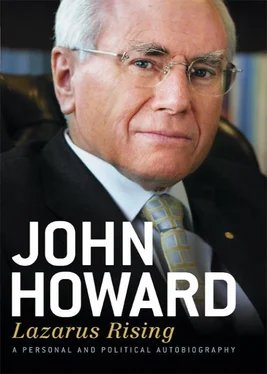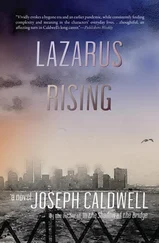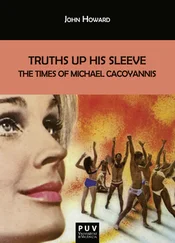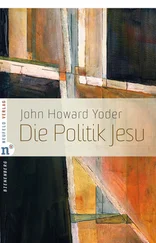Lionel Murphy had a barely disguised contempt for the influence of the Judaeo-Christian ethic on Australian society. When he died, the historian Manning Clark said that one of Murphy’s aims had been to dismantle the influence of the ethic on Australian life. To some people, the Family Law Bill was a bite-sized attempt to do just that.
I experienced, first-hand, the depth of rancour and personal hostility the bill had brought forth in Labor ranks. Frank Stewart, Minister for Tourism and Recreation, strongly opposed the bill, despised Murphy and was scornful of Whitlam’s encouragement of Murphy. Stewart was a strong Catholic, one of those Labor men in New South Wales who had heeded the injunction of Cardinal Gilroy and Archbishop James Carroll, the leaders of the Sydney Catholic hierarchy, to ‘stay in [the Labor Party] and fight’ rather than join the DLP at the time of the great Labor split in the 1950s.
Stewart had waited a long time to taste government, having in fact succeeded Dan Mulcahy in the seat of Lang way back in 1953, in a by-election following Mulcahy’s death. But the party he now belonged to was drifting further away from the party he had decided to stay in and fight to preserve from communist influence. It was people like Lionel Murphy who were pushing it even further away from the party of his youth. He was a decent, straightforward man who never hid his feelings.
He gave vent to those feelings about the Family Law Bill, and the roles of Whitlam and Murphy relating to it, in no uncertain terms. It was late one night, in a discussion also involving Ralph Hunt, the Country Party MP for Gwydir, who had similar reservations about the effects of the bill to mine. The three of us met in Stewart’s office to discuss a tactical approach to the debate on the measure. Stewart was deeply angered by Whitlam’s open support for the bill, being particularly incensed that the PM had himself introduced the bill into the house, instead of leaving it to Murphy’s representative, Kep Enderby. Sarcastically, he declared that Whitlam had even done the introduction ‘in a dinner suit'. No doubt Whitlam was dressed for a formal occasion, but I could see the point Stewart was getting at: the PM had an eye for the theatre of things, and would not have minded one bit being in formal wear when introducing this controversial bill.
The bellwether vote on the bill was a committee amendment moved by Bob Ellicott, the Liberal MP for Wentworth, which effectively aimed to increase the period of separation as the sole ground of divorce from one year to two. There were other changes proposed, some of which succeeded, including one from Malcolm Fraser which sought to protect a woman who wished only to continue her role as a wife and mother. But the Ellicott amendment symbolised the divide between those who thought that the bill went too far and those who did not. I voted for the Ellicott amendment. So did Paul Keating and Malcolm Fraser. Naturally Whitlam voted against it, as did the two former PMs still in the house, John Gorton and Bill McMahon. It was defeated by just one vote: 60 to 59. Thus came to pass a huge change to our divorce laws, untrammelled even by quite moderate concerns not to change too much too quickly.
A two-year period of separation as the sole ground for divorce, replacing the old multiple-fault provisions, would have constituted a profound modernisation, without the signal the bare 12-month period sent, that marriage mattered somewhat less than used to be the case. More than 30 years later, it is hard to dispute the fact that marriage has been weakened as the bedrock institution of our society. It is at least arguable that the Family Law Act has played a part in this process.
As 1974 wore on, the grass around Bill Snedden, the Opposition leader, had become drier and drier. There was natural loyalty to him. We all saw him as the good bloke, and wanted desperately for him to succeed. Yet, especially amongst the more recent arrivals as MPs, there were mounting doubts that he could effectively exploit growing concern in the community regarding the economy, and fix Whitlam with the necessary degree of responsibility for it. Snedden’s strongest support came from amongst longer-serving members and senators, who had gone through the pro- and anti-Gorton upheaval three years earlier. Many of them had had enough of leadership stoushes, and in the absence of a Messiah were content to stay with Snedden.
To me, and many others, Malcolm Fraser was the logical alternative to Snedden, but he was a deeply divisive figure, largely because of the part he had played in Gorton’s downfall. There were still plenty of Gorton supporters whose organising principle was not the return of Gorton to the leadership, but to keep it away from Fraser. There were some ideological drivers: people like Andrew Peacock and Don Chipp, identified as progressives, labelled Fraser too conservative and backed Snedden. That also kept open Peacock’s own aspirations for the leadership, should Snedden fall over.
Snedden’s support base also included people with very conservative stances on issues such as South Africa and Rhodesia (now Zimbabwe); John McLeay and Don Jessop, both South Australians, were firmly in this group. It was another reminder that one should not over-simplify the use of philosophical labels when it comes to the choice of a leader. In the end the dominant influence is always who is more likely to deliver victory. Ultimately, that led to Snedden’s replacement by Fraser.
Tony Staley, a Victorian MP, was Malcolm Fraser’s principal spear carrier. In his first attempt to topple Snedden, in October 1974, he was joined by Eric Robinson, MP for the Gold Coast seat of McPherson; John Bourchier, MP for Bendigo; and Peter Drummond, a farmer MP from Western Australia. Staley and his group were ridiculed for the tactics they employed. They openly waited on Snedden and told him that he should stand down in the interests of the party. There were strenuous denials of any involvement by Fraser in the actions of Staley’s group. It was easy to accept that Staley was the prime mover; he had been actively touting for Fraser for some time. It seems implausible that Fraser knew nothing at all of what was to happen when Staley’s group went to see Snedden.
Although there were predictable cries of treachery and disloyalty about the behaviour of Staley’s group, it was quite the reverse. They had been very open, having directly confronted Snedden with their concerns and asking him to resign. Naïve it might have been, but it was not treasonable.
At a party meeting late in November 1974, Staley moved a motion to declare the party leadership vacant. A clumsy attempt was made by some of Snedden’s supporters to prevent a secret ballot. One of them even called out, ‘Let’s see the dogs.’ The spill motion was lost, but the figures were not announced. I understand that this was the last time that the practice of not publicly disclosing numbers was employed by the Liberal Party. It was open to all sorts of mischief. Snedden’s supporters put around the story that he had won overwhelmingly. He had not. The vote was probably 36 to 26 in support of Snedden. I deduced from widespread discussion with colleagues in both houses that a majority of the Liberal members in the house had voted for a spill, a very clear sign that Bill Snedden’s days were numbered. I voted for Staley’s spill motion.
From then on the leadership issue was never far below the surface. The grass didn’t get green again until the change to Fraser in March 1975. It had remained tinder-dry over Christmas of 1974, which was dominated by the devastating Cyclone Tracy, which flattened Darwin and claimed 71 lives.
Whitlam’s breathtaking arrogance was on full display. He was on an extended overseas trip when the cyclone hit. He came home, went to Darwin and announced the Government’s response and then resumed his overseas visit, as if nothing had happened.
Читать дальше












